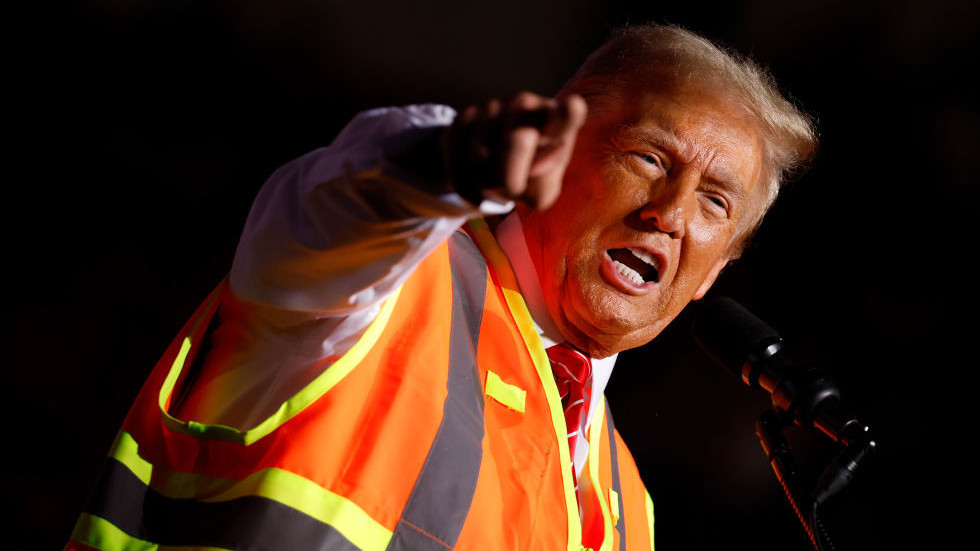Donald Trump, the Republican presidential candidate, has initiated a remarkable $10 billion lawsuit against CBS News, accusing the network of misleading voters through its edited presentation of a recent ‘60 Minutes’ interview with his Democratic opponent, Kamala Harris. The crux of Trump’s allegations hinges on the network’s decision to rearrange Harris’ responses to the same query regarding the complex situation in the Middle East. This editing was perceived to distort the essence of her original remarks, leading to accusations of voter manipulation. The controversy erupted following the airing of the interview in early October, during which CBS released two different segments of Harris’ answers—one in a promotional preview that appeared convoluted, and another in the full interview that presented a clearer response. Trump’s reaction was swift and vehement, dubbing the incident “the Greatest Fraud in Broadcast History” and demanding that CBS be stripped of its broadcasting license.
In the lawsuit, Trump’s legal team characterized CBS’s actions as intentionally designed to obscure Harris’s supposedly confusing responses in what they termed a “partisan and unlawful act of election and voter interference.” They argued that CBS leveraged its national broadcast platform to avoid showcasing Harris’s perceived weaknesses while simultaneously working to gain an unfair advantage for the Democratic Party in the impending election. The legal filing is notable for its high damages claim and the invocation of a Texas statute prohibiting deceptive business practices. A jury trial is requested, indicating Trump’s determination to pursue a public and legal showdown over the matter. The allegations reflect not only Trump’s commitment to his campaign strategy but also underline the highly charged nature of political discourse in the lead-up to the elections.
CBS News, in response to the lawsuit, has firmly denied any wrongdoing, asserting their commitment to defend itself vigorously against the claims. Their statement insisted that the interview was not manipulated or doctored and labeled Trump’s assertions as false. CBS acknowledged that they edited the interview for time constraints, but explained that they merely used different segments of Harris’ responses to fit within their programming framework. This defense raises questions about the ethical boundaries of editing political interviews, especially during an election cycle. Furthermore, CBS has chosen not to publicly release an unedited transcript or video of the entire interview, which could potentially clarify the discrepancy and mitigate some of the surrounding controversy.
This legal battle is occurring against the backdrop of a heated presidential race, with the candidates scheduled for a face-off in the upcoming election on November 5. Current polling data reveals an intensely competitive atmosphere, particularly in key battleground states where the margins between Trump and Harris are alarmingly thin—often 1% or less. The stakes are incredibly high for both candidates, and controversies surrounding media portrayals can dramatically influence voter perceptions and, subsequently, election outcomes. Trump’s lawsuit symbolizes not only a personal vendetta against CBS but also the broader tension within the media landscape, as both candidates navigate the turbulent waters of public scrutiny and partisan biases.
The allegations of media bias and manipulation raise broader concerns about the role of broadcast journalism in modern political campaigns. Trump’s lawsuit can be interpreted as part of a larger narrative regarding trust in the media, particularly among conservative voters who may feel disenfranchised or misrepresented. The use of phrases like “voter interference” reflects a growing sentiment among Trump’s supporters that media outlets possess the capacity to impact electoral outcomes, thereby triggering discussions about ethical reporting and accountability in journalism. The line between editorial judgment and manipulation is a gray area often debated in contemporary discourse, and the implications of this case may have lasting impacts on how media outlets operate in politically charged environments.
In conclusion, the unfolding legal conflict between Donald Trump and CBS News represents not merely a single dispute over an edited interview but rather a focal point in the ongoing battle over media integrity and electoral fairness. As both parties prepare for the ultimate electoral confrontation, the scrutiny surrounding their narratives will likely intensify. The outcome of Trump’s lawsuit could set a precedent for how political candidates challenge media portrayals and raise crucial questions about the responsibilities of news organizations in an era where perceptions are easily shaped and swayed. Looking ahead, observers will be keen to see how this lawsuit plays out and its effects on the landscape of political communication and voter engagement as the presidential election approaches.

